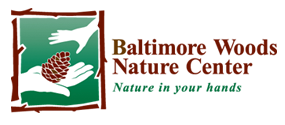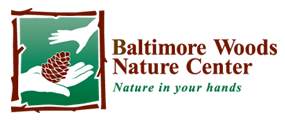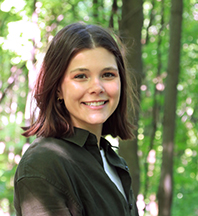Week of December 15, 2024 – December 21, 2024
by Kaylen Iorio, Environmental Educator
As an Environmental Educator, questions hurtle towards you from every direction. Whether that be during a school field trip at Baltimore Woods, in a classroom during Nature in the City, or even over the Nature Center’s phone, people are very curious and always looking for answers. That said, environmental education is not about shouting out answers left and right or providing a knowledge-dump of information, but instead guiding meaningful discovery to the inquirer.
As we approach the end of the year, I’ve been reflecting on how I put this into practice on our Elmwood Park field trip with 3rd graders from the Syracuse City School District. The goal of this field trip is to learn about green and gray infrastructure and how that impacts the health of our waterways. One way to measure the quality of a body of water is to look for pollution sensitive macroinvertebrates. So, the third graders hike up their pants and wade in the water, sifting through rocks on the stream floor. Excitedly, they will run up to me asking “what’s this!?”, “is that a worm?!”, “will this bite me?”, and my job as an environmental educator is to help them understand what they’re looking at while making thoughtful observations. My responses usually sound like this: “what does that look like to you?”, “what do you notice about that?”, “can we identify that using our ID sheet?”, “does that look the same or different from the one you showed me earlier?”. Instead of telling them “that’s a Black Fly larvae” or “no, that’s a Caddis Fly nymph, not a worm”, I ask them questions about what they are noticing about the creature, helping them form personal observations or “I notice” thoughts and statements. This is so important! These questions enable students to make discoveries of their own, getting them excited about figuring things out, and sparking passion and curiosity about nature. Answering their questions is not about simply providing them with a clear cut answer, but about facilitating development of their problem solving skills and overall interest in nature.
It’s a wonderful experience seeing the wheels turning in their young brains when you ask the right questions to students, their faces lighting up with excitement when they feel like they’ve discovered something totally awesome. Asking questions stimulates creative discussions where students can share their ideas and opinions, and we’re here to facilitate that! Asking questions not only benefits the growth of the students, but it also helps you learn more about their perspectives, personalities, and what they find interesting, helping you better gear your approach for each individual student.
Yes, we are here to provide answers to the myriad of nature-based questions, but who says answers can’t be more questions. Our jobs are to help you learn through your personal experiences and observations, connecting you to the wonders around you!


